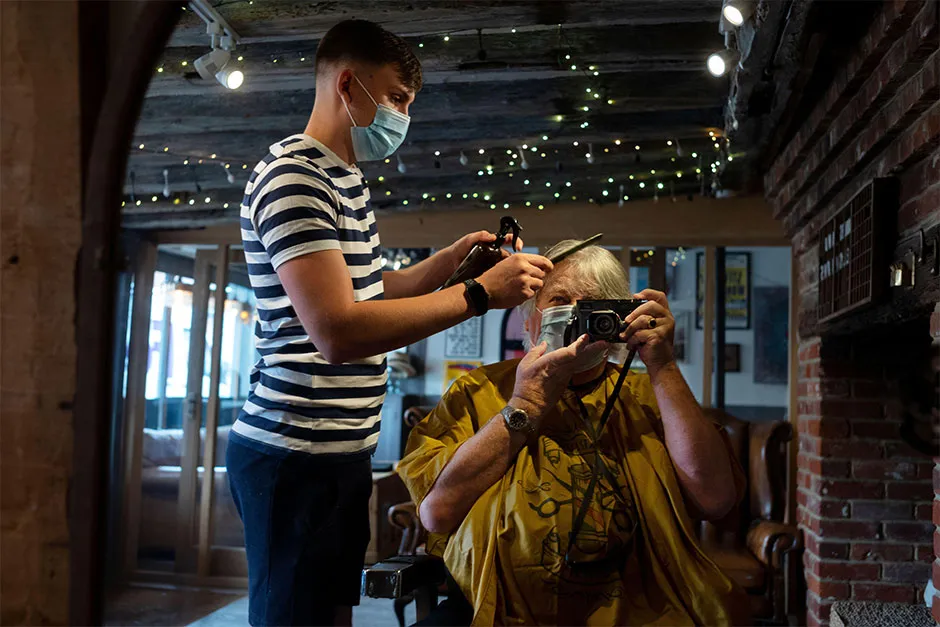One of the more obvious societal changes brought about by the COVID-19 pandemic is that it’s now far more common for people to wear masks in public. This is good: the masks are helping to limit the spread of COVID-19.
But as masks become commonplace, it’s interesting to consider how they affect our interaction.
The human face plays an important role in much of our communication and interaction. We’ve even evolved dedicated brain regions for recognising faces. So, obscuring half of it won’t go unnoticed.
As some have pointed out, until recently, covering the face was generally treated with much suspicion, something often used by unscrupulous types to stir up ideologically-useful Islamophobia by condemning the wearing of niqābs.
Read more about face masks:
- Coronavirus: Will face masks reduce transmission?
- Face mask use needed to ‘prevent COVID-19 second wave’
Consider our perception of masks in the pre-pandemic world. You’d invariably see them used in situations that suggest risk or danger, like when people handle hazardous materials or waste, or investigate crime scenes.
Television portrayals of muggers and violent criminals typically show them wearing a mask. Even surgeons and dentists, regular mask-wearers, while undeniably there to help people, mean masks are associated with poor health, body violation, and other things we don’t like.
One potential outcome of this is that we all become more wary, more attentive to dangers. A constant presence of threat cues in our environment has marked effects on our attention and thinking.
It could lead to people being more anxious, less engaged, and slower to respond to what’s going on around them, even if it’s important, because masks mean that part of our brain is always preoccupied.
Read more from Dean Burnett:
- Lockdown: why is social isolation so hard?
- Antidepressants: Why do people think they’re ineffective?
On the other hand, seeing masks everywhere could make people less worried. It suggests things are under control, that protection is present, that danger is minimised. Of course, this can have downsides, too. Studies into bike helmets, another head-covering garment intended to reduce hazards to health, have shown that wearing them can often make people take more risks.
Would regular mask-wearing lead to people taking the risks of COVID-19 less seriously? That’s far from guaranteed. Masks are a very different thing to helmets, and are perceived differently, but it’s something to keep an eye on.
One obvious concern about masks is the effect they have on communication. As stated, our faces play a big role in how we communicate, and masks undeniably obscure it. This causes issues for both the communicator and the communicatee.

We could end up with people displaying some mild version of the disinhibition effect, usually seen online when people can communicate anonymously, and subsequently show a lack of restraint and concern for who they’re talking to, which is why the internet can seem so hostile.
Admittedly, it’s somewhat far-fetched to expect people to suddenly abandon all social norms when talking to someone, just because they can’t see part of the person’s face.
But then, studies into people with facial paralysis show that others do tend to perceive them more negatively. Not being able to read people’s facial expressions seems to make us more wary, more suspicious.
Read more fromReality Check:
- Is there a physical limit to how much food you can eat in one sitting?
- Public memorials: Can removing them affect our national psychology?
Interestingly, the same studies reveal that those with facial paralysis tend to compensate for their inability to produce facial expressions by exaggerating their voice and their body language, conveying their emotions with more exuberant arm movements, larger gestures, more emphasis on words, and so on. And this does indeed make others perceive them more positively.
It’s interesting to see whether this will occur on a larger social scale, and we end up displaying emotions more with our bodies, when our faces are covered. Particularly in Britain, a country where people often pride themselves on being reserved and aloof.
At the end of the day, humans are an incredibly interactive species, and it’ll take more than a virus and masks to stop us communicating. How we end up overcoming these obstacles remains to be seen.
Visit the BBC's Reality Check website at bit.ly/reality_check_ or follow them on Twitter@BBCRealityCheck
